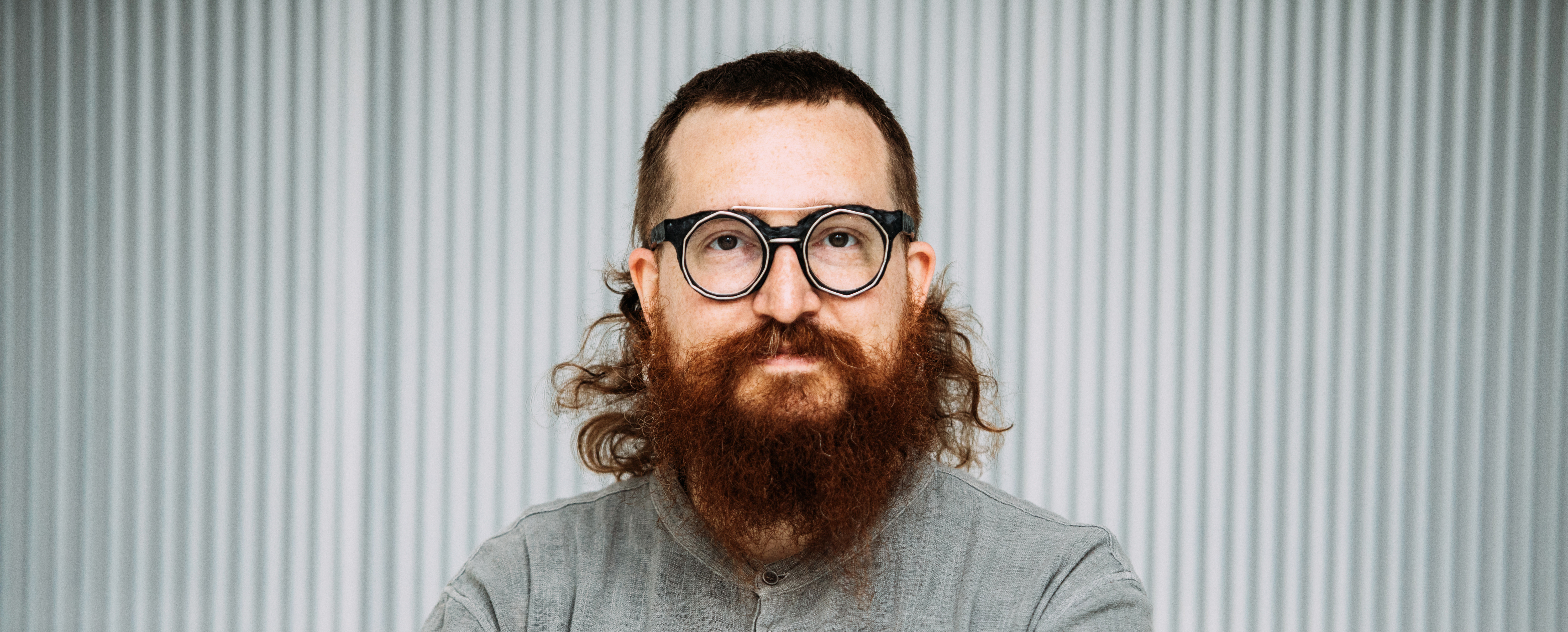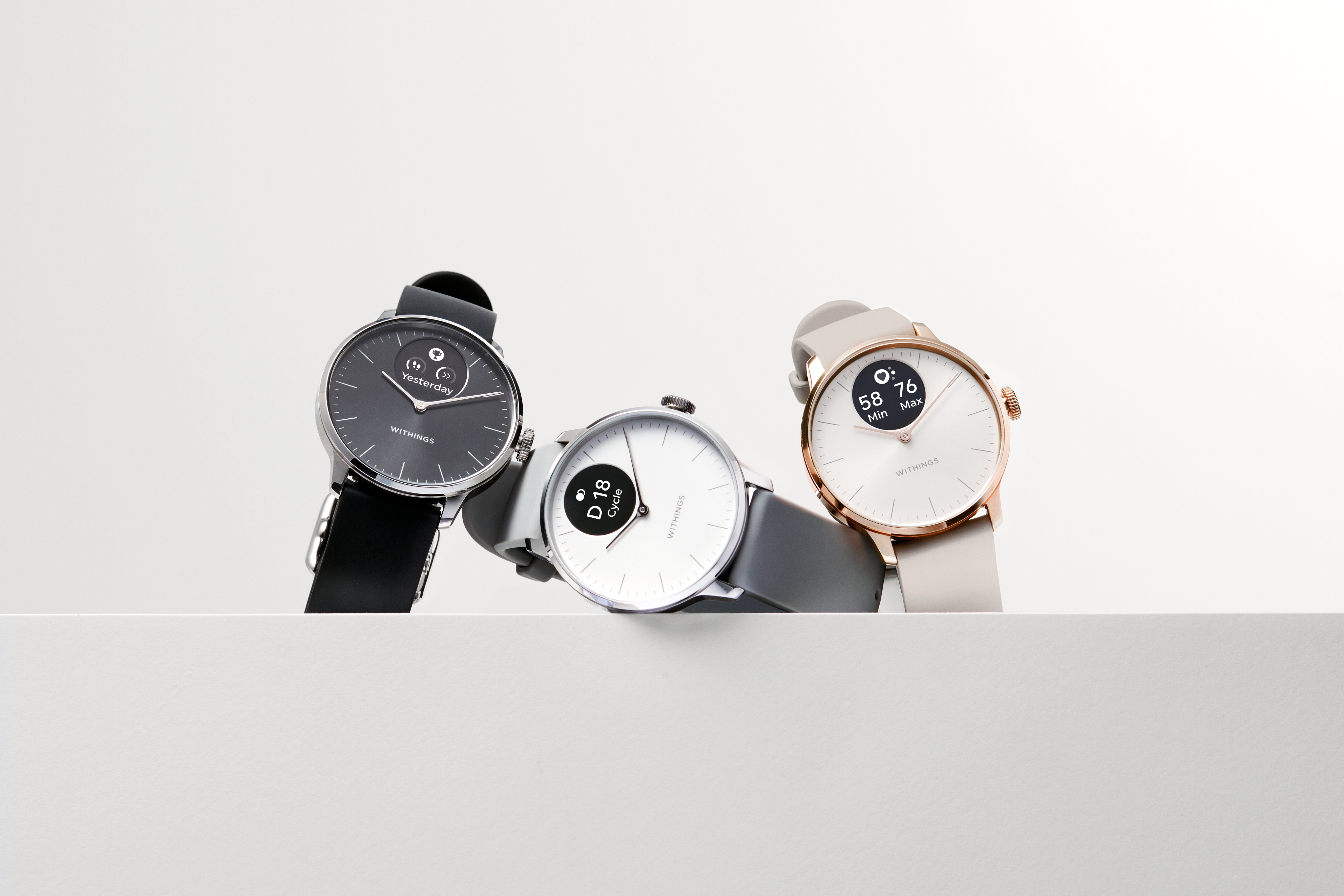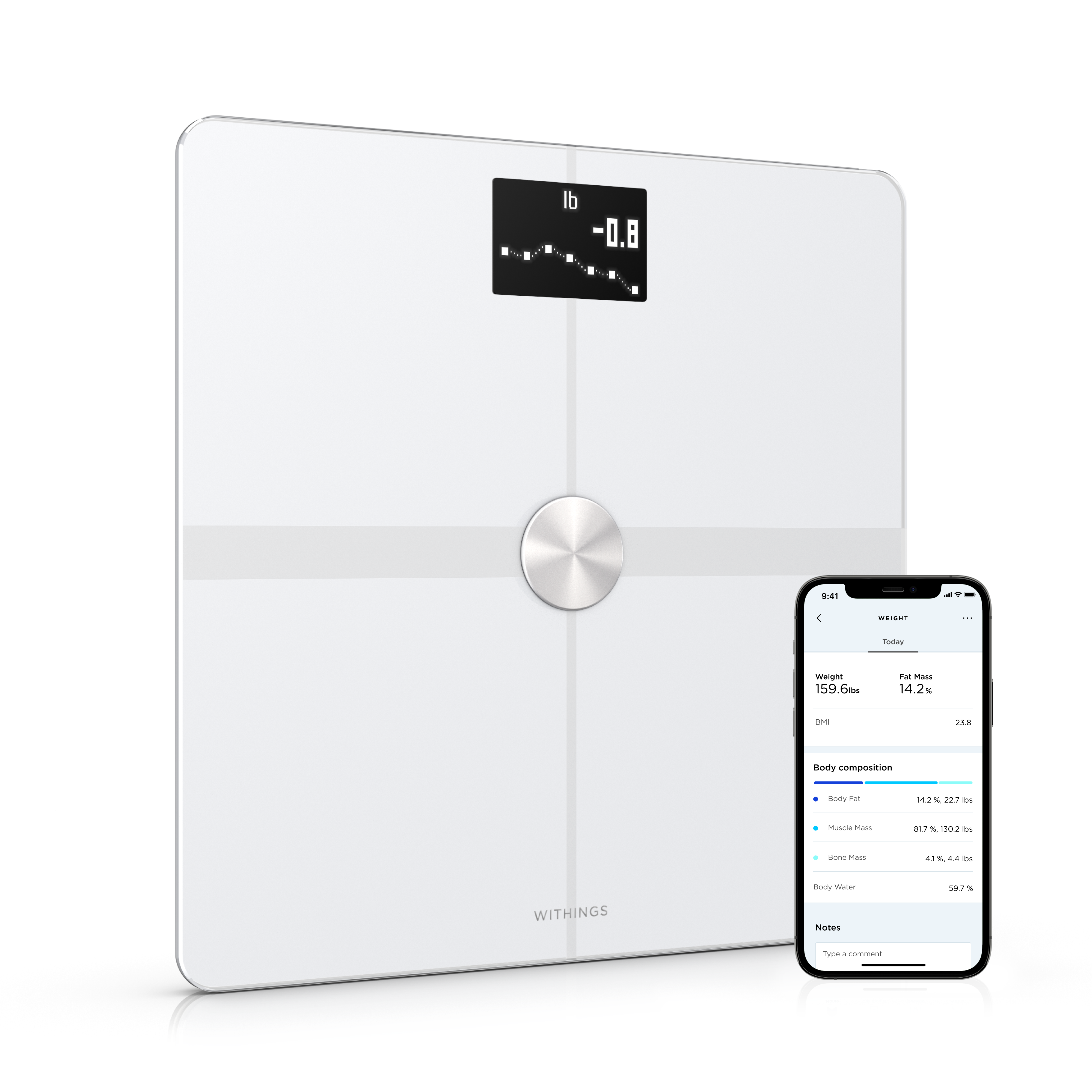
Life can get complicated—but are there ways to simplify? We talked to hacker, avid traveler, and long-time Withings user Harper Reed to find out.
Technologist, travel enthusiast, and Withings user Harper Reed has an undeniably impressive resume—he’s held high-profile positions at Threadless, PayPal, and as Chief Technology Officer of Obama’s reelection campaign. He’s had a lot of balls in the air (literally—he once opened for Sir Mix-a-Lot as a juggling act.) So how does he stay grounded? We talked to him about his methods for streamlining work, life, and traveling, including why he doesn’t watch movies on planes and how his devices—he’s had a Withings Activite watch since 2015, and a scale since 2009!—help him simplify his life.
Withings: Hi Harper! How would you describe yourself?
Reed: I’m a hacker/entrepreneur. Typically I’m building and creating things, and I do hacking in the more traditional sense.
Any particular projects you’re currently working on?
I do not have a specific project. I’m in search of [one] pretty aggressively, but nothing has reared its ugly head yet. I believe a lot in the journey, and part of the journey is trying to figure out what the journey actually means. So, for instance, right now I’m in this kind of funny place where—did you ever use Lego as a young person? Remember when you were looking for that one [specific] piece, and you knew it was there, you saw it yesterday, but for the life of you, you cannot find it? And then you get up and leave, come back a minute later, and it’s right there in front of you.
I think a lot of times when we’re searching, the act of searching kind of precludes us from finding. I remember [one time] my brother and I were playing with Lego and running into this thing where I would say, “Hey, I’m looking for this piece, a blue 6 by 1,” and he’d be like “Okay, cool, I won’t look for it,” and I would be like, ”I won’t look for it either,” knowing that if you don’t look for it, you have a chance of finding it, but the moment you start looking for it, you’ll never find it.
So I think that’s where I’m at. I need to create space and opportunity and an open mind to find what’s there.
I’m intrigued by this quote from your website: “There’s a beautiful and organized system hidden underneath what seems messy.” Can you tell me more?
I’m definitely a systems person. Efficiency is an interesting thing. Efficiency doesn’t necessarily mean the closest point between A and B; efficiency can be what makes you more comfortable, what makes you feel better. If you look at this chaos that we live in, [whether it’s] a computer program or very complex data, and you start thinking about the system that created it, you start to see through that maze. You start to see through the fog. And then it just becomes another system that you can do something with.
My entire career has been powered by being able to see a system and making it less complex. You look at it and think, “This system is super-complex; there’s no way I can solve this problem,” and then you spend 15 minutes with it and go, “Here’s a very clear path.” You could look at a mountain and say the same thing. When you’re hundreds of feet away, it’s incredibly hard to see the path forward. But then you get up there, and there are these paths that have been there for hundreds of years. And you’re like “Oh. that’s easy, I can walk here.” … So that’s how I think about it all.
It’s interesting, because when I was reading over your work history, you seem to have managed a lot of super-complicated things. How do you approach streamlining, or making things less complicated, when you need to scale up?
If you have clear goals, it’s actually really easy. I think one of the biggest problems organizations have is that the goals aren’t clear. It’s not that they haven’t always been clear, it’s just that right now, in this moment that we’re facing, there isn’t a straight clarity. So I do think that having incredibly clear goals is helpful.
For instance, in the Obama campaign, we had very clear goals. So scaling that was actually not that hard. I mean, it was a lot of hard work by a lot of very smart people. But one of the things that powered us above all was the pure clarity of purpose. We had a very strong goal, we had a very strong leader, and all of that helped make sure we were focused on the right thing. So then the question was more tactical, and it was a little easier to get things done.
I don’t want to make it seem like having clarity will solve all your problems. But it definitely makes things easier.
Traveling seems to be a big part of your life. So, what’s your next trip?
I fly to Raleigh this afternoon, and then I fly to Amsterdam in a couple of weeks. I do travel a lot. You get to this point where your problems are silly problems. You can’t say “Oh, I’m so tired of flying to fancy places.” I try to not spend a lot of time not thinking about “Oh, I didn’t get upgraded,” or “This is a long flight,” which you can easily complain about because we as humans are complainers.
I recently stopped watching movies on planes, and I do a lot of international travel, so that’s quite a commitment. I really want to use that time wisely. I think one of the best things you can do when you’re trapped is sleep. So I sleep a lot, I read a lot, and I listen to a lot of music, and I try to do these things that are relatively introspective, that are pushing me to be thoughtful, pushing me to think about these experiences, and that’s actually been really positive and kind of fun.
What were your favorite places to visit?
I think one of the best places anyone can go is Johannesburg, South Africa. The experience of Johannesburg is so amazing. That’s exactly what I want—to go to a place that has had such a cultural shift in my lifetime and see how people are thinking about it, talking about it. It’s so inspiring to talk to young South Africans, people my own age living in Johannesburg. Johannesburg is just such a wild, wild city. It’s just really, really fun.
Tasmania was absolutely incredible. The food is good, the people are very kind, the museums are amazing. And I love London. I spend a lot of time in Southeast Asia, which is incredible. I’m very challenged by places where the capitalism is different from the U.S., places like China or Singapore.
It’s such a weird thing to quantify your favorite places. I have a real problem with recency bias. If someone says “What’s your favorite place?” I say, “Oh, I was just in San Francisco! It was great!”
When you travel, what do you like to do?
One of my favorite things to do is have dinner with people I don’t know—someone I just meet there, or if someone is like, “Yo, my friend is here,” or if someone hooks you up with someone: “Hey, that person might be interesting to talk to.” I love that experience. Whenever my partner and I travel, there’s always some random person we’re going to have dinner with. She knows it, I know it. She thinks it’s fun, I think it’s fun, and almost always it’s amazing, because they’re just normal folks doing normal things. I like that because you can really, truly learn a lot. You never know where your inspiration will be.
I think it’s really good to not be too worried about the rules. This is a way to do that. I love going to museums. I think that looking at art and seeing art is so incredible. I think there’s a lot of exciting things that you can learn from art. There’s always weird stuff, there’s always the thing you didn’t expect, that you turn the corner and go, “Whoa, this is crazy!” I love that. One of my favorite museums is the Museum of Old and New Art in Tasmania. It’s a wonderful museum, somewhat strange, run by a somewhat strange person. I think that’s pretty fun. You don’t know what to expect. The curators do a good job of challenging you.
I’m an aggressive people person. I really like seeing and meeting and experiencing all of these people and it’s really fun and you never know who or what is going to happen.
Any travel tips or gadgets you’d recommend?
I use a Withings Activite watch. One nice thing about the Withings watch is it looks like a watch, not a smartwatch. It doesn’t give you notifications. [Note: Some Withings watches do—check out all our watch options here. — Ed.] The main thing is it allows me to track my sleep, etc. while traveling through time zones. If I’m in a hotel and want to figure out, I can see, oh, I slept 12 hours due to jet lag. And I don’t think I could live without a Kindle, and I have really good in-ear headphones. I try not to drink on the plane. If you’re doing that, it’s not very good for your body.
I think the one thing I learned that goes back to the Obama campaign is the idea that it’s a marathon, not a sprint. How do you do whatever you’re doing without burning yourself out? Taking care of yourself, really spending time trying to solve those big questions. For me, I spend a lot of time on self-care. I sleep a lot, which is why I use a Withings watch.
I’ve always been into the quantified self. I’ve written a bunch of code around [my data] and save all my information, it’s been a lot of fun to see what I’ve gained, lost, my muscle mass, etc. I enjoy looking through it and thinking through it and all of that. It’s been kind of fun to experience this, basically using Withings to have a better visualization of what’s going on with me and my life.
One of my rules is I don’t want to charge anything anymore. One of the reasons I really like my Withings watch is you don’t have to charge it, and one of the reasons I like Kindle is that you don’t have to charge it very often. Those are the things I think are important. What can I not charge? Life’s too short to be thinking about charging all this stuff.
Any tips or tricks you want to share about your Withings devices?
The main thing is just pure consistency. The more that you wear it, the more that you have it, the better it’s going to be for everyone. If you wear it as much time as you can, things will turn out pretty well. That’s something that I think is the key. That’s why I like the Withings devices—it’s such a small, easy thing. I just put this thing on my wrist, I consistently wear it, and it’s fine. That’s all I need, and I really appreciate that Withings has made a product that’s that straightforward and easy.
What led you to Withings in the first place?
What led me there was the [Withings] scale: It worked super well, was easy, and didn’t cause many problems. I think the key is that it just works. For me, I don’t want to deal with things that are complicated. I don’t want to deal with a bunch of bullshit. I really want to make sure the thing I’m doing is easy—“easy” is a silly word—but it really is about: Does this work? The Withings products have been very simple, so it’s been nice. I live a pretty high-tech life, and I just want something that is not single-purpose, but honestly just consistently works.
I really appreciate Withings and always have. I’m happy they’re independent again.
You’re based in Chicago, so here’s one more very important question from a former Chicagoan: what’s your favorite deep-dish pizza?
I don’t believe in deep-dish pizza. It’s an abomination. It’s like someone really f*cked up a quiche.
Aww, Harper! Thanks for the time and… we’ll have to agree to disagree on the pizza. Keep up with Harper on his website at www.harperreed.com and on Twitter at @harper.
Photo credit: Diana Levine




